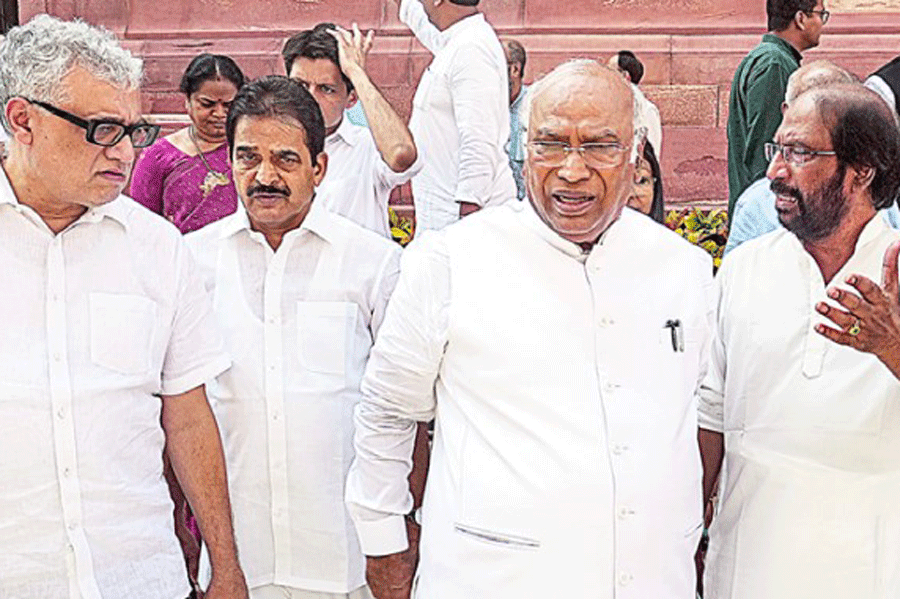The INDIA coalition parties will meet President Droupadi Murmu on Wednesday to apprise her of the situation in Manipur based on the visit of their MPs last weekend to the affected areas even as they plan to continue to press for the Prime Minister’s statement in the Rajya Sabha on the situation in the strife-torn state.
Though Rajya Sabha chairman Jagdeep Dhankhar cited a 2014 ruling on a similar demand by former member Sitaram Yechury of the CPM to rule that insistence on a statement by the Prime Minister is both “constitutionally ill-premised and infirm”, the INDIA coalition parties remained steadfast on their demand, resulting in prolonged sloganeering in the House followed by walkouts.Stating that he had indicated to the Opposition MPs that more time than stipulated for a short-duration discussion could be allotted to a discussion on Manipur, Dhankhar repeatedly said their insistence on the Prime Minister’s statement was “constitutionally ill-premised” as the accountability of the government to the legislature was a “collective responsibility”.
While the first hour of proceedings was adjourned within 15 minutes in view of the protests, Dhankhar insisted on carrying on with the business of the House through the din during Question Hour, resulting in the Opposition MPs staging a walkout midway. They returned to the House post-lunch but opted to walk out again after efforts to get the Leader of the Opposition a say were turned down.
Consequently, the government managed to get three bills — the Multi-Sector Cooperative Societies (Amendment) Bill, the Biological Diversity (Amendment) Bill and the Mediation Bill — passed with no opposition input.
Earlier in the afternoon, after the Opposition walkout, Dhankhar urged MPs from the ruling side to reach out to them and make them see reason, listing out his efforts to facilitate a discussion. For the second time on Tuesday, he said the time limit on a short-duration discussion could be extended but Opposition MPs stuck to their guns.
By way of explaining their reason for insisting on a statement from the Prime Minister, Congress senior leader Jairam Ramesh cited precedence in a detailed post on social media.
“Those questioning the demand of INDIA parties for a statement by the Prime Minister on Manipur in the Rajya Sabha to be followed by a discussion should recall what had happened in May 2002 in the very same House. Here’s the chronology of events:“
On May 6, 2002, the Rajya Sabha had a discussion on the following Motion moved four days earlier by Congress MP Shri Arjun Singh… At 12.04 pm that day, Dr. Manmohan Singh Leader of the Opposition spoke on the Motion. At 12.26 pm, Prime Minister Shri Atal Bihari Vajpayee spoke on the Motion. At 12.56 pm, Shri L.K. Advani Minister of Home Affairs spoke on the Motion. At 1.35 pm, Shri Arjun Singh replied to the debate. At 2.25 pm, the Motion was UNANIMOUSLY adopted.”
Addressing the media with leaders of INDIA coalition partners outside Parliament, Kharge said there was a lot of difference between discussions under Rule 267 as demanded by the Opposition and Rule 176 offered by the government. “Under Rule 267, all party MPs will get time to speak in detail whereas under Rule 176 there is limited time for discussion.”
As for insisting on the Prime Minister’s statement, Kharge said he would have inputs that even the home minister would not have. Further, he pointed out, there were enough precedents of business being suspended to take up issues of importance and former premiers had responded to them in Parliament. “The Prime Minister is forever speaking outside, but he has no time for Parliament.”











